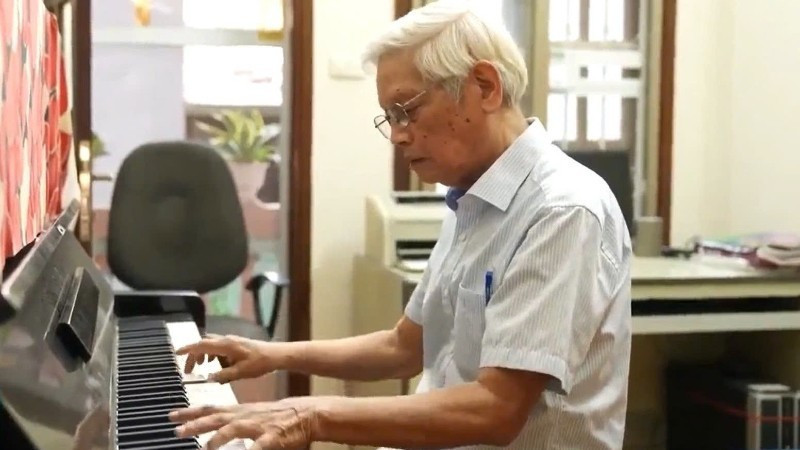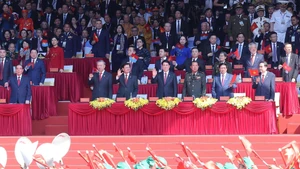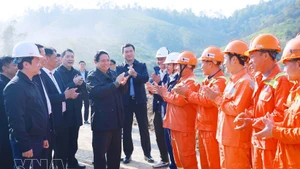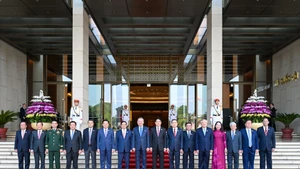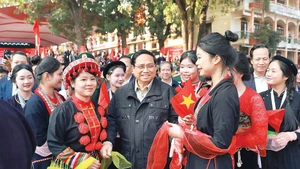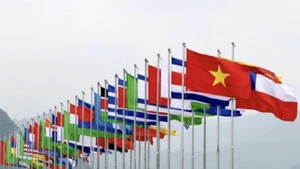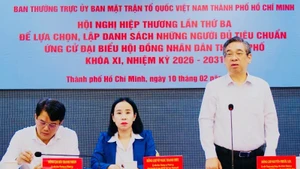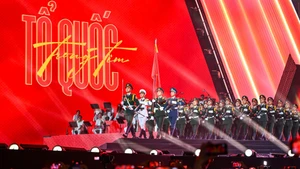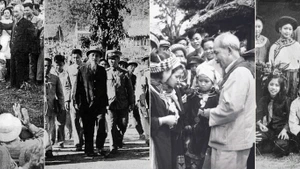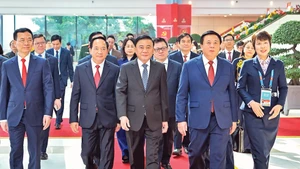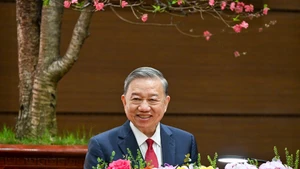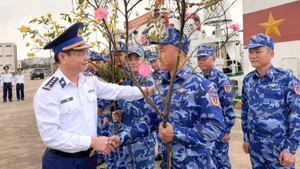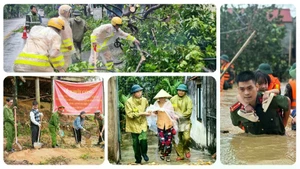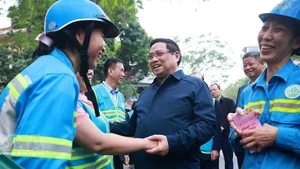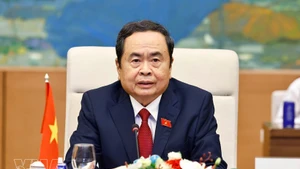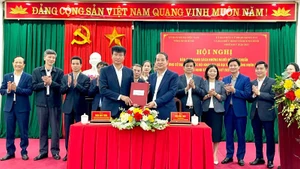For them, witnessing the first Independence Day was not only a source of pride but also a motivation to live and devote their entire lives to the revolution and the Fatherland.
People’s Armed Forces Hero Nguyen Tien Ha was born into a patriotic family. Growing up under French colonial rule, he nurtured from a young age the aspiration of national liberation. In 1944, at only 16, he joined revolutionary activities. His and his comrades’ tasks at that time included distributing leaflets, posting posters, spreading awareness among the people, and opening literacy classes for poor workers.
Ha was among the first members of the Hoang Dieu National Salvation Youth Union, the core youth force of Ha Noi at that time. Because of this, he deeply understood the meaning of the word “Independence”, and aspired all the more to live in a liberated nation.
Recalling that historic day, he said with emotion: “Our Hoang Dieu National Salvation Youth Union was assigned the task of calling on people to attend the mass rally. That morning, I went with fellow members and citizens to Ba Dinh Square. We were all excited, raising high the red flag with a golden star, chanting slogans. Before, carrying the flag was something we had to do in secret; now, to do so openly in broad daylight before tens of thousands of people — such a feeling was beyond words.”
“When the ceremony began, I was fortunate to stand near the flag tower. When Uncle Ho appeared, my heart was overwhelmed with joy. Uncle was simple in his faded khaki suit — no suit, no tie — very different from my imagination of a leader. When he read the Declaration of Independence, he would pause at times and ask: ‘Can you hear me clearly, compatriots?’ and the entire square responded in unison: ‘Yes, we can!’ That was the most moving moment for me.”
In Ha’s memory, the first Independence Day was not only a historic event but also the day he saw clearly the strength of national unity. That faith and emotion urged him to devote his whole life to the revolutionary cause.
If Nguyen Tien Ha attended as a young revolutionary, then Colonel–musician Doan Nho was only a 12-year-old boy. But the memory of that historic day nurtured in him a love for the revolution and the Fatherland, which later became an endless source of inspiration for his songs that have accompanied generations.
Musician Doan Nho was born into a family with a strong revolutionary tradition in Cot village, Ha Noi’s outskirts. His house was once a secret base, a meeting place of the suburban Party committee led by comrade Vu Oanh. From an early age, he was familiar with the image of Viet Minh cadres coming in and out, holding meetings at his home. He himself was tasked with serving as a liaison and protecting the revolutionary base. With his musical talent, he was also assigned to guide children’s teams in singing, popularising revolutionary songs.
On the night before Independence Day, he was so eager that he could not sleep, waiting for the dawn. The next morning, little Doan Nho carried a drum, joining the children’s team leading the parade from Cau Giay, along Kim Ma Street, towards Ba Dinh Square. Along the way, people sang revolutionary songs, warmly greeting one another, sharing the joy of soon becoming citizens of an independent country.
He recalled: “When Uncle Ho appeared on the platform, I was overjoyed. Everyone knew that was Nguyen Ai Quoc — the leader the nation had long awaited. When Uncle Ho read the Declaration of Independence, happiness surged in every heart as we witnessed our country officially named on the world map.”
“I still remember, in the middle of the rally, an American plane flew in circles over Ba Dinh. The people in the square simultaneously waved the red flag with a golden star, as if affirming: Viet Nam is independent, free, and equal to other nations. That moment was deeply engraved in my mind, awakening my revolutionary consciousness and driving me to follow the revolutionary path. The emotions of that sacred, proud moment later helped me compose revolutionary works such as the symphony ‘Historic August’, the song ‘Marching Under the Military Flag’, ‘Five Brothers on a Tank’…” musician Doan Nho said emotionally.
Eighty years have passed, the country has undergone many changes—from the arduous years of resistance to today’s path of construction, renewal, and integration. Yet the value of independence and freedom, won by previous generations with their blood, remains intact and undimmed. Today, when standing at Ba Dinh Square, looking towards Uncle Ho’s Mausoleum, every Vietnamese cannot help but feel moved recalling that historic moment. Though the present generation did not directly witness it, through the stories of witnesses they can still feel the sacredness and grandeur of that revolutionary autumn of 1945.
The memories of Nguyen Tien Ha or musician Doan Nho are not only personal stories, but also reminders of sacrifice, faith, and the power of national unity. They are an invaluable spiritual legacy for today’s and future generations in the cause of building a prosperous country, firmly integrating into the world, preserving national identity, and nurturing national pride.
